Sri Lanka will decriminalise homosexuality, official vows
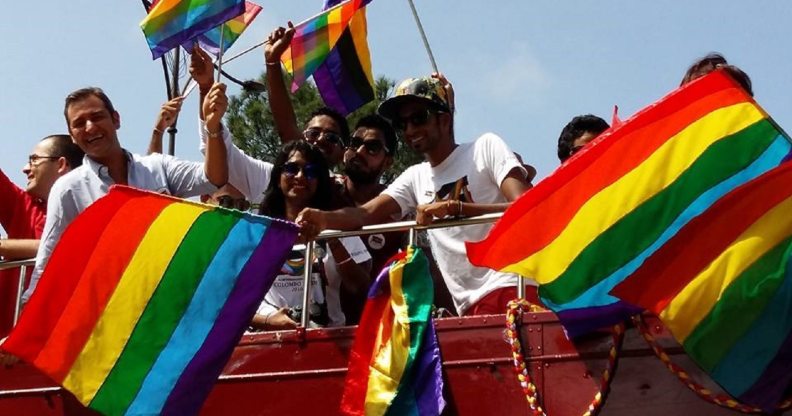
The Sri Lankan government has assured human rights experts that it plans to decriminalise homosexuality.
It is currently illegal to be gay in Sri Lanka under laws inherited from the country’s colonial past.
It maintains an archaic “gross indecency” law that bans gay sex.
The government has previously rejected calls to change the law – though it paradoxically has taken steps to ban anti-gay discrimination in the workplace.
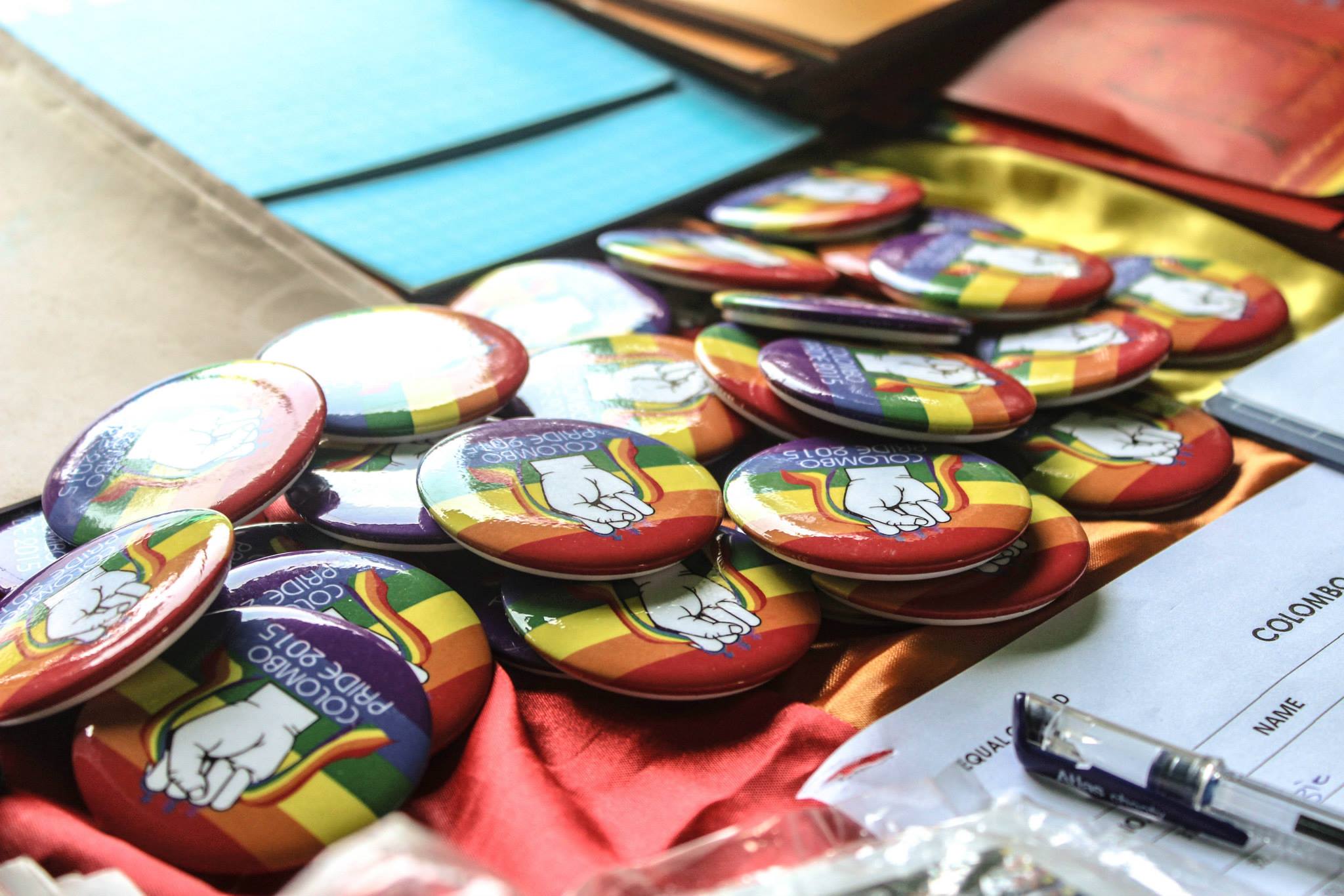
But responding to the UN’s Human Rights Council earlier this month, the country vowed to reassess the anti-gay law.
The issue was raised as part of the country’s Universal Periodic Review (UPR).
The Sri Lankan government received seven specific recommendations to amend sections 365 and 365A of the Penal Code, which target people in consensual, adult same-sex relationships.
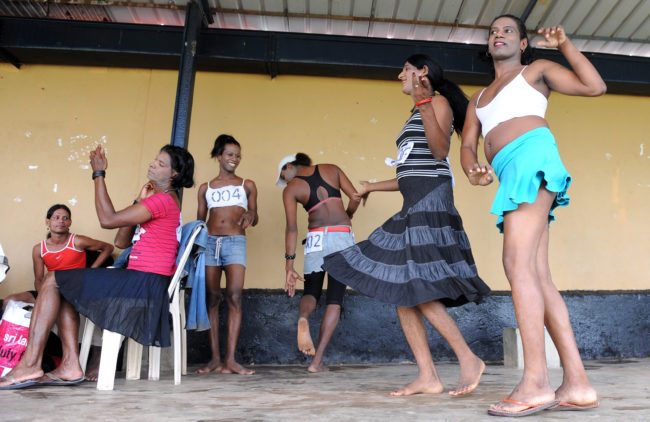
Participants dance during the “Diversity Games” a competition organised by Lesbian, Gay, Bisexual, and Transgender organisations in Colombo (Photo by S.KODIKARA/AFP/Getty Images)
Further recommendations were made for the state to adopt measures to combat the discrimination faced by the LGBTIQ community.
The country’s representative, Deputy Solicitor General Nerin Pulle, said that the government is committed to reforming Sri Lanka’s penal code to ensure that it meets international human rights standards.
He also said the country planned to make the right to non-discrimination on the grounds of sexual orientation and gender identity “explicit” in law.
Mr Pulle said: “Despite social, political and cultural challenges that remain with respect to reforming law, Sri Lanka remains committed to law reform and guaranteeing non-discrimination on the grounds of sexual orientation and gender identity.”
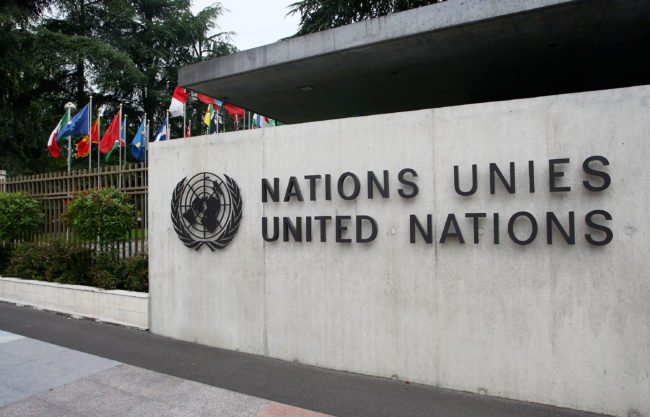
The United Nations (Photo by Johannes Simon/Getty Images)
The change may find some support in the country.
Sri Lanka’s Supreme Court recently noted: “The contemporary thinking [is that] consensual sex between adults should not be policed by the state nor should it be grounds for criminalisation.”
In a release Rosanna Flamer-Caldera, Executive Director of Sri Lankan LGBT rights group EQUAL GROUND, said: “We commend our government’s commitment to reforming the Penal Code and amending the Constitution to explicitly include sexual orientation and gender identity as grounds of non-discrimination.
“No one deserves to be targeted by the law because of who they are or whom they love.
“Our government has shown significant resolve in pledging to address the criminalisation faced by the Sri Lankan LGBTIQ community and guarantee them basic rights that have for so long been denied.
“Whether LGBTIQ or not, we are all entitled to the full enjoyment of all human rights. We look forward to the government fulfilling on this commitment.
“We welcome the Government of Sri Lanka’s willing and continued engagement with the Human Rights Council and the UPR process, and commend in particular our government’s commitment to the full realisation of human rights for all citizens in the country.”
The activist added: “We are pleased that in this regard our Government specifically addressed the questions and concerns raised by the UN Member States about the continued criminalisation of consensual same sex sexual conduct and the discrimination and violence faced by the LGBTIQ community in Sri Lanka.
“We are very grateful for the efforts of the international community who continue to raise their concerns over the treatment of the LGBTIQ community in Sri Lanka and greatly appreciate the recommendations that have been made today.”
Currently same-sex acts, by a person of any gender, are illegal under Sri Lankan law.
Households headed by same-sex couples are not eligible for any the protection given to married couples.
Some private clinics in Sri Lanka claim to be able to “cure” patients of their homosexuality, despite the fact its widely recognised same-sex thoughts can not be changed by therapy.
PinkNews revealed last year the annual Pride event in Sri Lanka was targeted with death threats.
One threat read: “Faggot activities aren’t legal. Let’s take the law into our own hands.
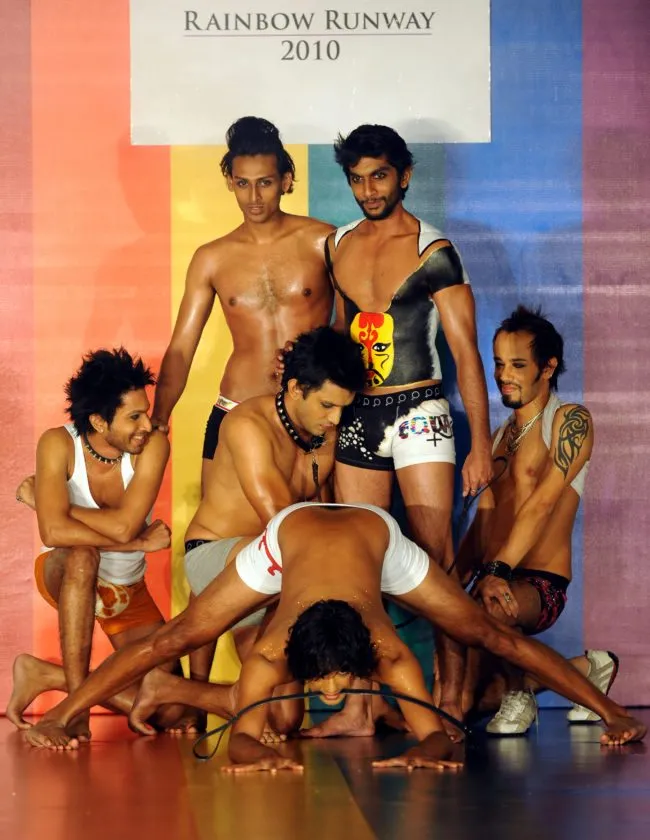
Gay models wear local designs as part of a fashion show in Colombo to celebrate the annual Gay Pride week. (Photo by Ishara S.KODIKARA/AFP/Getty Images)
“If the police aren’t going to do anything about it our community is ready to do it ourselves. We will not let these mother f**king dogs to ruin our culture.”
Another added: “The scum of the earth f**kers who hide behind colorful rainbow flags, adding: “They’re gonna try to put this filth into the minds of our Sinhalese people and make us all extinct”.
At the time, British peer Baroness Barker said: “As a Liberal Democrat peer, I am asking the FCO to challenge the Sri Lankan government to protect its LGBTIQ citizens, to allow them to meet peacefully in a safe space free from discrimination and prejudice. I also challenge the government of Sri Lanka to take appropriate action against this vile and violent group.”

